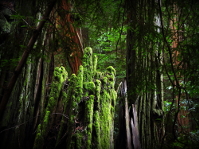My mom recommended these two books to me, and apparently they've also been featured on reading lists from all sorts of famous people.
In "Sapiens" the author examines the history of our species, from emergence in Africa to the present day, focusing on the major revolutions (cognitive, agricultural, industrial, scientific, etc) and how they shaped us into the dominant life form on the planet. His primary thesis is that we are separated from other animals by our ability to cooperate flexibly in large numbers. This ability arises from our capacity to believe in things that exist purely in our imaginations (e.g. god(s), nations, money, human rights, etc). Such concepts provide a unifying force that binds together groups of people, even when the people in a group don't directly know all of the others in the same group. It's a pretty interesting theory, and one that is hard to dismiss after his extensive presentation of the history of our species.
In "Homo Deus" he projects his theories into the future, discussing how we might change and what new "religions" might evolve as the unifying force to replace the liberal humanism we have now. Much of the book is devoted to the idea that technology will become better than humans at almost everything, so we will have to find meaning in other places.
The books are on the long side, and can be repetitive and hyperbolic, but all of the predictions are hedged and alternate possibilities are regularly presented. All the predictions seemed reasonable, which means they're probably wrong and will feel dated a few years from now. But the historical analysis seemed pretty good.
I enjoyed the whirlwind trip through 70,000 years of homo sapiens and in particular I liked how equally he treated all of the stories we've told ourselves over the millennia. The various religions, ideologies, beliefs, and systems of our history are all arbitrary and fictional but yet so powerful. They are the things that propelled us to where we are, and new fictions will be required to keep us moving forward in the future as we deal with advanced computational systems, genetic and biological engineering, climate change, and whatever else happens next. Fun stuff.


